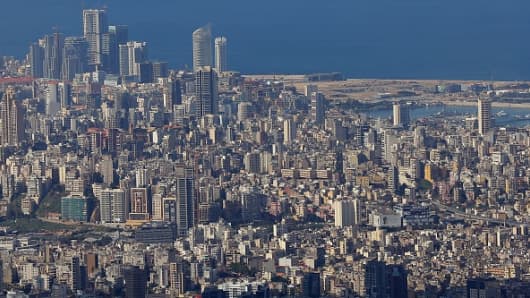The cost of insuring Lebanese debt has hit its lowest level this year on the back of some reassuring news for investors: The country has finally formed its government after nine months of gridlock, and state officials revealed they are in talks over financial support for a floundering economy.
Lebanon's five-year credit default swaps, or the price of insuring the country's debt against a default, fell to $694 this week from a high of $900 in January, levels not seen since November last year.
But markets have yet to see the change that will unlock $11 billion in funds pledged by international donors to the small Levantine country at the Paris Cedre conference last April. The financial support rests on the condition of direly needed reform in the areas of corruption, subsidies and public-sector spending.
The new government will "most certainly" introduce austerity measures to shore up international and bond market confidence, according to political risk consultancy Eurasia Group — and that will not be easy.





